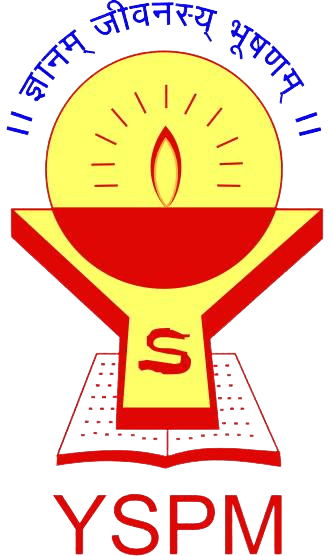Vision
Yashoda Technical Campus aspires to be a role model for institutional excellence and to emerge as a Leader in Technical & Management Education and Research by providing value based Quality education with World class infrastructure and strengthening strategic linkage with Industry, Premier Institutions and thereby fostering excellence in teaching, research and community service to meet educational, social and economic needs of the region and the nation to create human society.
Mission
- To provide opportunities to students and faculty to acquire higher qualification and experience with continuous learning opportunities.
- To impart quality education by implementing state-of-the-art teaching learning methods to enrich the academic competency, credibility and integrity of the students.
- To empower the students with current knowledge, skills and right attitude in order to meet the challenges of future & to develop competence towards serving the ever changing needs of Industry and Society.
- To create and maintain a vibrant research environment to promote excellence in research and extension activities.
Program Outcomes (PO's)
1. Pharmacy Knowledge : Possess knowledge and comprehension of the core and basicknowledge associated with the profession of pharmacy, including biomedical sciences; pharmaceutical sciences; behavioral, social, and administrative pharmacy sciences; and manufacturing practices.
2. Planning Abilities : Demonstrate effective planning abilities including time management,resource management, delegation skills and organizational skills. Develop and implement plans and organize work to meet deadlines.
3. Problem analysis : Utilize the principles of scientific enquiry, thinking analytically, clearly andcritically, while solving problems and making decisions during daily practice. Find, analyze, evaluate and apply information systematically and shall make defensible decisions.
4. Modern tool usage : Learn, select, and apply appropriate methods and procedures,resources, and modern pharmacy-related computing tools with an understanding of the limitations.
5. Leadership skills: : Understand and consider the human reaction to change, motivationissues, leadership and team-building when planning changes required for fulfillment of practice, professional and societal responsibilities. Assume participatory roles as responsible citizens or leadership roles when appropriate to facilitate improvement in health and well-being.
6. Professional Identity : Understand, analyze and communicate the value of their professionalroles in society (e.g. health care professionals, promoters of health, educators, managers, employers, employees).
7. Pharmaceutical Ethics : Honour personal values and apply ethical principles in professionaland social contexts. Demonstrate behavior that recognizes cultural and personal variability in values, communication and lifestyles. Use ethical frameworks; apply ethical principles while making decisions and take responsibility for the outcomes associated with the decisions.
8. Communication : Communicate effectively with the pharmacy community and with society atlarge, such as, being able to comprehend and write effective reports, make effective presentations and documentation, and give and receive clear instructions.
9. The Pharmacist and society : Apply reasoning informed by the contextual knowledge toassess societal, health, safety and legal issues and the consequent responsibilities relevant to the professional pharmacy practice.
10. Environment and sustainability : Understand the impact of the professional pharmacysolutions in societal and environmental contexts, and demonstrate the knowledge of, and need for sustainable development.
11. Life-long learning : Recognize the need for, and have the preparation and ability to engagein independent and life-long learning in the broadest context of technological change. Self-assess and use feedback effectively from others to identify learning needs and to satisfy these needs on an ongoing basis.
